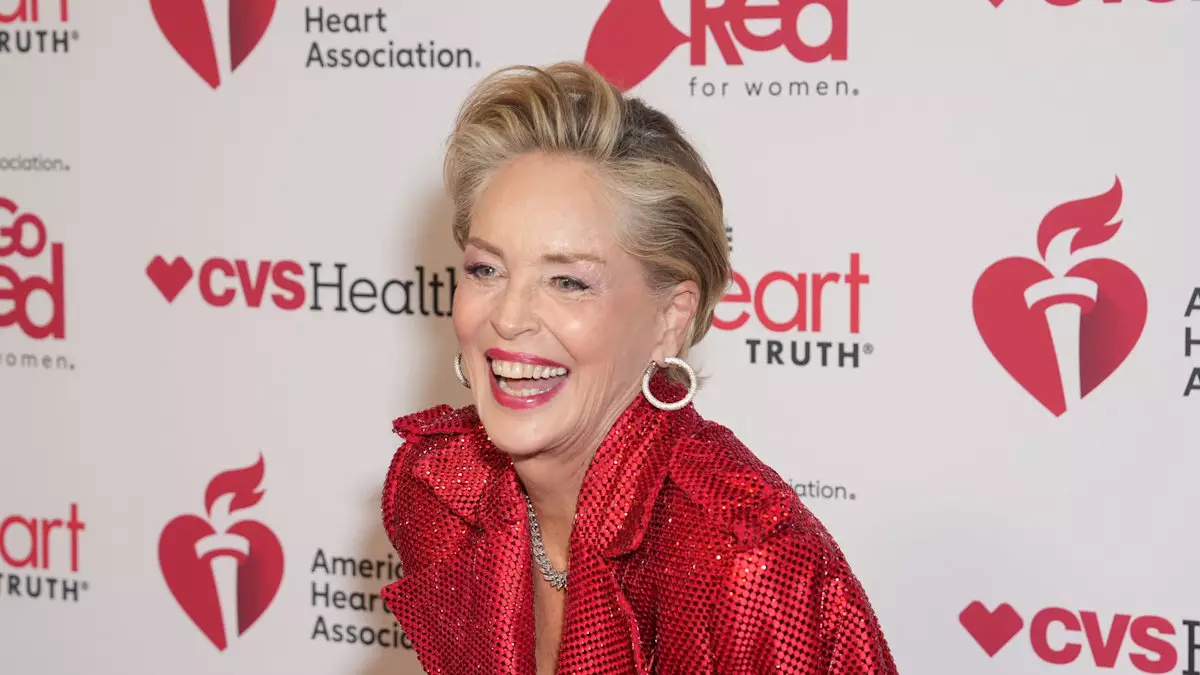Sharon Stone’s journey has transformed her from a celebrated Hollywood actress into a passionate advocate for women’s health. Her profound personal experiences, including a life-threatening stroke in 2001, ignited her commitment to addressing significant health disparities faced by women. At events like the American Heart Association’s Go Red for Women concert, Stone often emphasizes the critical need for awareness regarding cardiovascular issues, a cause she passionately supports.
The turning point in Stone’s life came unexpectedly when she suffered a stroke that nearly claimed her life. This traumatic event resulted not only in extensive physical recovery but also in profound insight into women’s health issues that had previously been neglected. This awakening in Stone highlights the disparities that have long existed in the medical research landscape, particularly the absence of adequate focus on women’s health.
As Stone herself observed, “We understand that our gynecological health was never addressed until 2002,” pointing to systemic failures in how women’s health concerns were historically neglected. This statement serves as both a criticism of past medical practices and a rallying cry for change. Stone highlights that critical health setbacks often stem from a lack of understanding and research specific to women, emphasizing the need for a more inclusive approach in the healthcare system.
Following her stroke, Stone encountered formidable challenges during her recovery. She candidly shared that it took approximately seven years before she felt ready to return to the industry. This lengthy period of rehabilitation not only affected her physical health but also altered her place within an ever-evolving entertainment landscape. As she noted, “In seven years, you’re no longer the flavor of the time,” pointing to the harsh reality of Hollywood’s fast-paced nature.
This reinforces a sobering reality for many artists: careers are often closely tied to public perception and industry connections, which can diminish over time. Stone’s sentiments resonate deeply with those who experience health crises that take them away from their passions, as it illustrates the emotional and professional toll of such life events.
Stone’s experiences have fueled her advocacy for improved medical care and greater research on women’s health issues. As she reflects on her path, she champions the importance of investment in women’s health initiatives, stating, “We need to invest in women’s healthcare because we don’t want to be one of those countries who end up with a bunch of men who don’t have women to be with.” This stark observation underscores the far-reaching implications of neglecting women’s health issues, not just on individual lives but on society as a whole.
Sharon Stone uses her platform to face the realities many women encounter regarding their health. She utilizes her voice to confront systemic failures, pioneering discussions around hormonal imbalances and their consequences, such as strokes, that can drastically alter a person’s life trajectory.
Despite the painful lessons learned from her near-fatal experience, Stone has managed to cultivate resilience and advocate pioneering change. The challenges she faced are encapsulated in her words, “I had a death experience, and then they brought me back,” a proclamation that signifies both her struggle and her renewed purpose.
From enduring a brain bleed that altered her sensory perceptions to reclaiming her voice within Hollywood, Stone exemplifies the importance of perseverance. The actress has poignantly remarked on the lasting effects of her stroke, noting, “I couldn’t read for a couple of years,” revealing a glimpse into her resilience.
Ultimately, Sharon Stone’s narrative is one of tragedy transformed into empowerment. Her journey from a victim of a debilitating health crisis to a staunch advocate for change illustrates the profound impact of personal experience on public advocacy. She reminds us that each story holds the potential to inspire change, fostering a future where women’s health is prioritized and valued within society.

